The internet is a great place to catch up on all the chemistry you wish you studied in high school.
Given that science teachers now have access to both stocked laboratories as well as YouTube channels, there's never been a better time to try to dust off you chemistry knowledge.
Here are a few chemical and physical reactions in GIF form to get you back in the swing of things, courtesy of the Chemical Reaction GIF subreddit.
If all the GIFs don't load, try refreshing the page.
The "Elephant Toothpaste" reaction results from mixing Potassium Iodide and Hydrogen Peroxide. It results in a huge reaction of oxygen-filled foam.
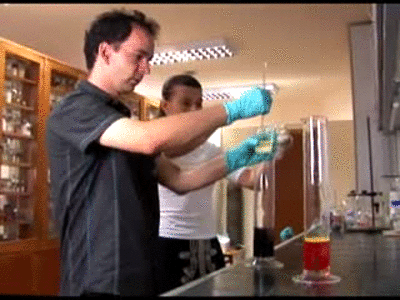
Burning Mercury (II) Thiocyanate produces this cool effect:

Mercury (II) Thiocyanate used to be sold as a firework until people realized that it was essentially awesome-looking poison.

Here's what happens when you mix sucrose (here in the form of a gummy bear) with melted Potassium Chlorate.
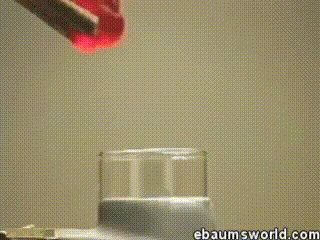
Mixing the alkali metals (The left-most column on the periodic table) with water has increasingly interesting effects as you work your way down the periodic table to larger elements. Lithium, the Period 2 alkali metal, isn't super interesting.

Potassium, the period 4 alkali metal, is somewhat more reactive.
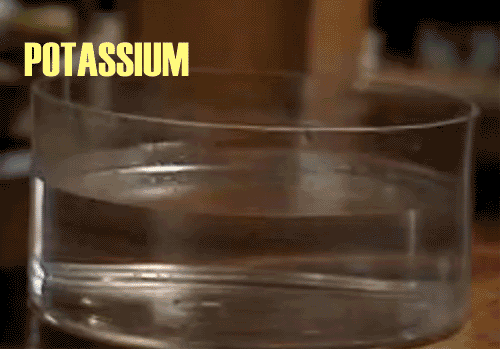
Dropping rubidium (the period 5 alkali metal) into water has a more pronounced effect.

Cesium, the largest of the four and a period 6 element, should not be mixed with water without a professional.
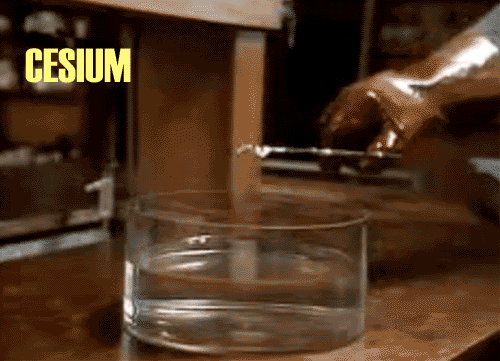
A ferrofluid is a fluid that becomes strongly magnetized in the presence of a magnetic field. Essentially, they're nano-scale particles of magnetic iron suspended in an organic solvent. Put them near a magnet and things get really awesome really fast:
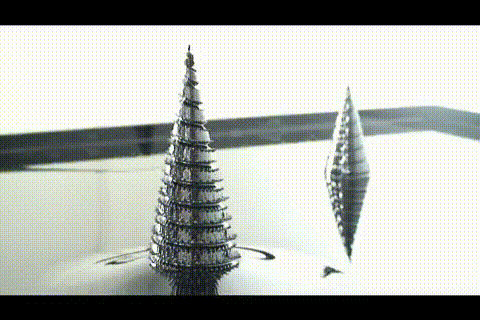
More ferrofluids:

Here's a dead cuttlefish. Soy sauce is being poured on it. Soy sauce is very, very high in sodium. Sodium is responsible for a lot of the activity in nerves, so when you pour lots of it on the dead fish's nerves it flinches and spasms.
The dish is called odori-don for those who plan to avoid it forever.
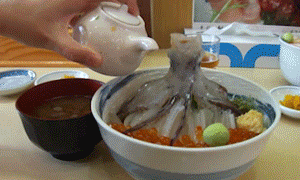
This is a particularly elegant explanation of why why we don't fill blimps with Hydrogen anymore.
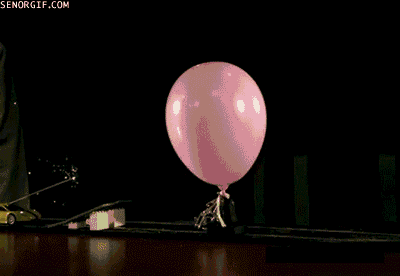
One to try at home: light an extinguished candle from its flammable smoke trail:
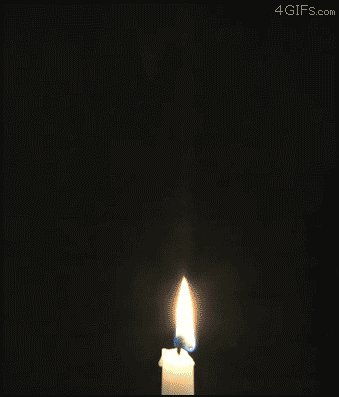
Gallium is a metal that melts at 85 degrees Fahrenheit. This means it will be solid at room temperature, but melt from the warmth of your hand. Here's what happens when you try to stir hot water with a gallium spoon:
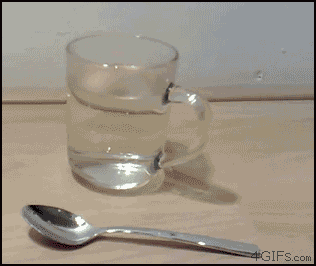
You can buy gallium online.
SEE ALSO: 7 Animated GIFs That Will Make You Instantly Understand Trigonometry
AND: 9 Animated GIFs That Show How Machines Really Work